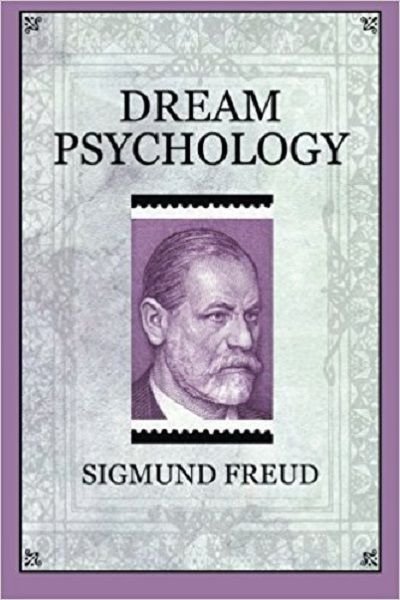
Dreams are the Royal Road to the Unconscious.
Sigmund Freud
Today, the analysis of dreams is a very popular and controversial subject. Some think that interpreting dreams is meaningless. They think that the most reliable way to get rid of negative emotions after a nightmare is to say in the open window the covenant words: "Where the night has gone, there is the dream to go." Some, after waking up with a bad mood, start remembering dreams and looking for answers by analyzing them. No matter how it reaches a person in his dreams, he can’t ignore this subject. Because every morning we are again and again choosing what to do with the information we remember from our dreams. To answer the question of how to deal with our dreams, let's first look at how they are formed. Our psyche can conditionally be divided into three spheres: conscious, unconscious, and superconscious. For the first time for the structure of the psyche, Zigmund Freud began to talk ("The Ego and the Id"). After him, such famous psychologists as K.G. Jung, A. Adler, E. From, and many others have dealt with the study of this subject.
The conscious sphere is responsible for our perception of the world, the surrounding people, and the events that happen to us. The unconscious sphere is responsible for our desires and instincts that move us but which we do not always realize. The superconscious sphere is responsible for the moral conditions we live with, the rules and principles we follow. The greatest influence on the formation of dreams is our desires. In the real life, we often suppress our desires because our moral principles do not allow us to do what we want. Desires that we have given up under the ban, do not disappear without a trace, they fit into the unconscious sphere and start worrying us in dreams. And so, dreams are formed at a level of unconscious sphere, there are emotions and instincts that have not yet passed the censorship of our rules and prohibitions. That is why sometimes the information we have received in a dream can astonish and shock us. It happens that, after a dream analysis, the thought arises: "What a terrible thing, I can't be that I wanted it." Moreover, the emotionally significant events that happened to us before sleep affect the suppressed sleeping wishes.

For example, a client is told she has gone to a secular dinner. All women were dressed in long cocktail dresses, and men in tuxedos. She had the important task of recruiting a man. The sleep is formed under the influence of the strong emotions that the client experienced the night before. She was a relative on her birthday. She liked the feast. The entourage of this evening has become the basis for her sleep. Sometimes, in the dreams, we can see the external environment we were before dreaming. The sleeping patterns often affect our real problems and situations that we have not been able to solve. Typically, such dreams also have information that suggests how to resolve the problem. As an example I will bring a dream to a client: he ran with a colleague, before the finisher stumbled and fell and his colleague beat him in the competition. This dream talks about the fact that in the real life the client had a competitive situation in which he lost. Now, analyzing the dream, we can find the reasons and the solution to this situation. In the course of the discussion, it became clear that the client had claimed to be promoted but raised his colleague. You have experienced negative emotions with your colleague, whom you have not recognized before you. However, he noticed that their relationship began to crack. My client subconsciously blamed my colleague for his failure, and therefore did not analyze his mistakes and what he did not achieve in order to get the desired job.
So, the key factors influencing the formation of dreams are our feelings and desires, emotionally saturated events of the day, and problematic situations that we could not properly solve. Now let's take a look at the no less important ingredient of our dreams - the symbols. The dreams of man consist of symbols that are emotionally important to him. Here, for example, a client who has experienced a lot of emotions in the elevator many years ago - for her, after that, the elevator became a powerful symbol in her dreams. When lived in complicated situations, she was given elevators, inscriptions in elevators, meeting with other people in elevators, downhill or climbing and other events related to lifts. In this way, her unconscious part tried to provide her with the symbol for her. Interpretation of symbols has a particularly individual character. For example, for one person the earth symbolizes sexual desire, and for another - insidious competitors. Also, often in our dreams are symbols of childhood. We may not realize or remember what emotional significance they had for us then. For example, a woman periodically dreams of artificial red flowers. By analyzing her dreams for three months, we have seen the regularity that this symbol appears in her dreams after quarrels and conflicts. During her therapy she remembered that in her childhood she had often witnessed her parents' quarrels. Usually this was done in the living room. There were artificial red roses on the table in the living room, and she stared at them, trying to break away from her parents' screams.

Analyzing this information, she came to the conclusion that red artificial flowers symbolized her scandals and violence. By realizing how our dreams are formed, it becomes clear to us what information we can get for ourselves in the course of the analysis. Our emotions and desires are grotesque in dreams, even if we ignore them and push them out of our real life. Also in interpretations of noticeable negative emotions, which are accompanied by the displacement of desires. These are the emotions of irritation and aggression, one can live in them practically constantly for a long period of their lives, and over time such emotional states become a habit. Sometimes, in analyzing recurring dreams, we realize our old desires, and then our emotional state changes to good. Psychic traumas from childhood that continue to influence our lives can be proactively traced through the symbols and the plot of dreams. For example, nightmares reflect the fears of man most often formed in childhood. Sometimes we can see sleep in an environment that surrounds us in childhood, in the yard, or in the home we lived in, such stories most often reflect unpleasant emotionally significant situations that we could not solve, and possibly not we have realized then.
By exploring our dreams, we have the opportunity to know ourselves at a deeper level, to find answers to our exciting questions, to understand the causes of our problems that worry us in real life. Also, dreams are excellent assistants in dealing with depressive states. The reasons for fear, the inability to experience joy, aggression, apathy, and many other conditions can be found by analyzing our dreams. Knowing the language of their unconscious, we improve our emotional and mental self-confidence in real life.
I was in the Psychology department way back in subject because i took the exam late. I found this book about Psychology of dreams and it really hooked my friend and I reading it. We wanted to borrow it from them but then, we opted not to instead.
In my country this book is very rare to find. It was terribly difficult to find her, and I had to give for the book colossal price, but I think that it deserve. :D
Oh my is that how expensive it is? Yay
Thank you for sharing these info. Have been wondering about what dreams meant. Though there are times that I dreamt about unfamiliar things, faces and places. And no matter how i think about it, mostly i just don't understand or it doesn't make sense to me. Also there are dreams that I really wanted to remember on what have happened coz it seemed like important but i cant get through it in my memory and all i remember are fragments or nothing at all.
The Dreams are really something very deep, but in our rational age they are thought to be something fake. I think a lot about this topic, still the dream are mystery to me :)
Hi! I'm new here. Really need help. Please vote My articles. I vote for yours. They are very good. Thank You!
Sure :)
Sadly, I haven't remembered a dream in years.
With me is the same :(
Really a great explanation here @godflesh. I really feel that dreams are just another way for us to receive information about what's going on within us. And because of the symbolic nature of these dreams, we can begin to objectively point out patterns and recognize the language that is being conveyed.
I really like how you broke down the three different aspects of consciousness:
I think it's really important to understand those - especially the superconscious, one area in which the psychology of the future will absolutely appreciate and legitimize.
Here's her most recent post if you're interested.Have you checked you @aprilangel's page yet? If not, you might find her posts interesting. It's often all about dream analysis.
Thanks for sharing this @godflesh!
I also write a lot about the subconscious/superconscious realms, most specifically in the realms of empowerment psychology. I'd love to hear your thoughts on my most recent post: How To Activate Your Mind's Propulsion Systems
Es interesante este tema, normalmente no recuerdo mis sueños y es algo que siempre he tratado de mejorar, pienso que los sueños deben indicarnos algo crucial, en definitiva hay que analizarlos , gracias por la info
really interesting post! I've always been fascinated with dreams. thanks for sharing! following :)